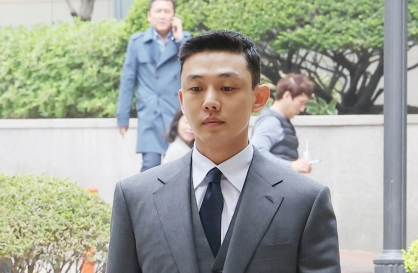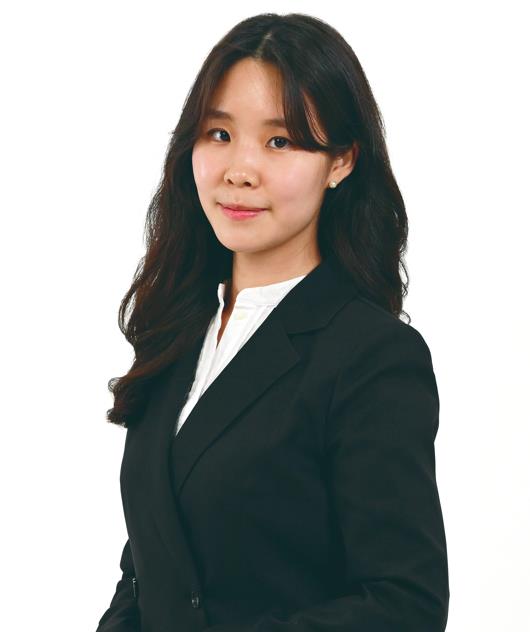[Herald Interview] 'UN peacekeeping forces need better gender equity'
By Lee Jung-younPublished : Sept. 27, 2023 - 09:42
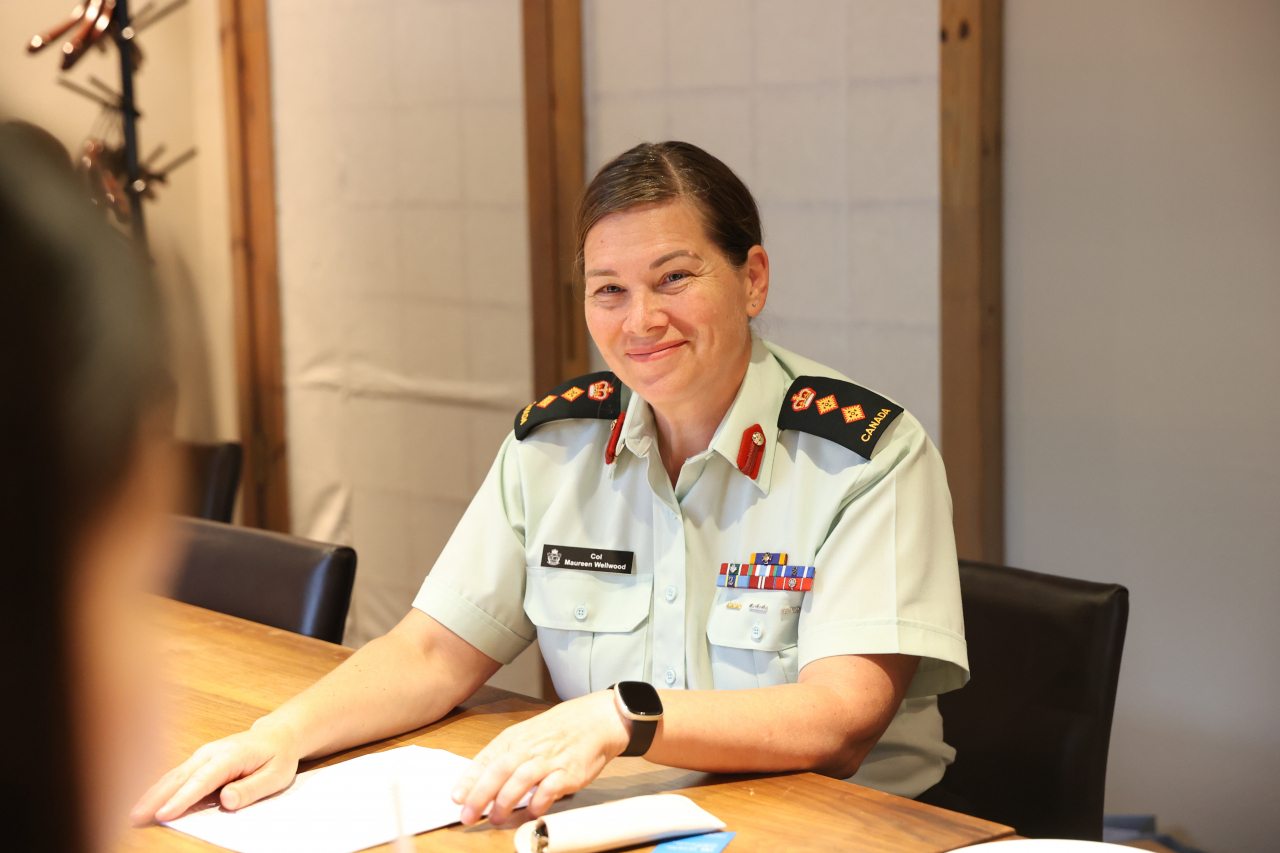
United Nations peacekeeping force officers who visited Seoul earlier this month emphasized the need to enhance gender inclusivity within peacekeeping forces and to recruit more talented women into the military.
Colonel B. Maureen Wellwood, the first woman in the Canadian Infantry to attain the rank of colonel, said women’s strength plays a key role in situations where peacekeepers should build trust with suffering residents, referring to her missions in several countries including Afghanistan and Congo. She was one of the speakers for the Korea Peacekeeping Forum for Women's Empowerment held on Sept. 4 in Seoul to celebrate the successful conclusion of the Women's Military Peace Operations Course. In the WMPOC, a training program designed to increase women’s full, equal and meaningful participation in UN Peace Operations, 20 female soldiers from 12 countries participated.
"Within the process of conflict resolution, often we'll find that women can bridge across factions more easily than men can. When we walk into a room or a situation we automatically have commonalities and understand other women in the room in a way that the men are not going to understand them,” Wellwood told The Korea Herald in a roundtable interview.
Including Wellwood, officers from different backgrounds expressed earnest support for the UN’s “Women, Peace, and Security” agenda. Under the WPS, the UN is working to increase the proportion of female soldiers within the UN peacekeeping force to 15 percent. Statistics show that the proportion of female soldiers participating in UN peacekeeping operations was only 1 percent in 1997 and rose only slightly in past decades, reaching 4.8 percent in 2020.
Recalling her mission in Congo, Wellwood said women were actively involved in the resolution process to protect local female residents. “The local population was being attacked while they were going from village to fields to harvest crops. As many of the men had left the village to fight and protect their communities, the local factions saw this as a vulnerability and exploited that opportunity to attack the women. Peacekeepers in Congo increased patrols and actively dissuaded the belligerent factions after grasping the situation,” the colonel explained.
She emphasized that the incident was meaningful as it was the first initiative raised to protect women. It was also one where a problem was resolved through a chain of women – from women in the community to civil society, female NGO agents and to the peacekeeping team that was made up with a good proportion of women.
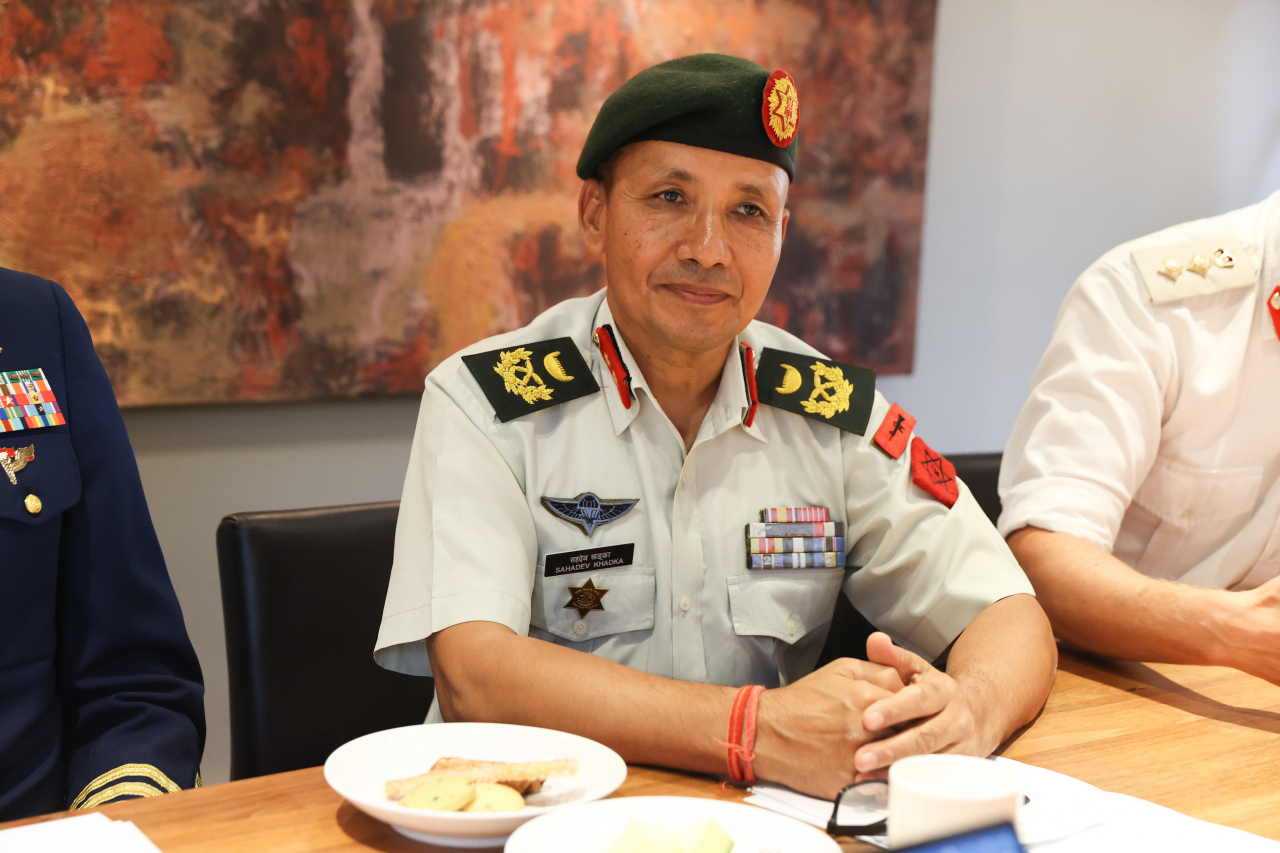
Major General Shahadev Khadka, the commandant of Nepali Army War College, agreed that women have an irreplaceable position in a peacekeeping operation. He stressed that the involvement of female peacekeepers in the mission decreases the possibility of sexual abuse and exploitation throughout the peacekeeping operations. “We organize small teams consisting of female peacekeepers, and they would talk to female residents to dig out hidden problems – often situations involving sexual exploitation and abuse.”
Including women in peacekeeping operations not only benefit the operations themselves, but also sets exemplary conditions for more skilled women to choose a military-related career, said Captain Corey Braddock, chief of the Office of Expeditionary Logistics at the US Coast Guard.
To attract more women to the UN peacekeeping forces, governments must include more women in their own military, the military officers pointed out. They stressed that to do so, structural and cultural barriers should be resolved first.
“Lots of militaries haven't had women throughout the whole ranks and into all roles until quite recently,” said Colonel Hugo Lloyd, chief of staff of the UK's 6th Division, claiming that practical solutions to break down the social norms are needed.
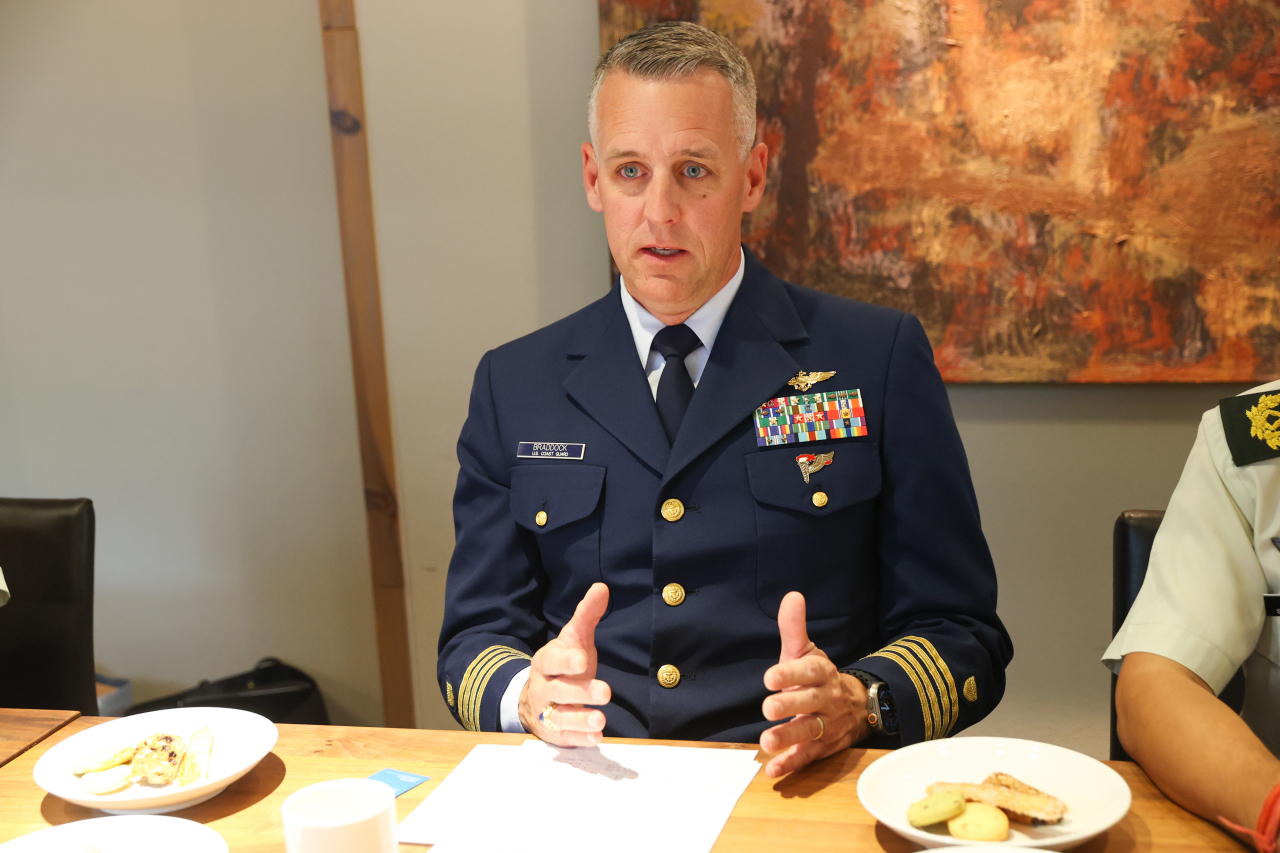
Braddock cited his experience at the US Coast Guard headquarters, in which he participated in designing a new policy to retain female members even after childbirth, citing that policy-level intervention to help soldiers continue their careers is essential.
“The policy was to resource another member during the female member’s maternity or childbirth leave and fill the gap. It made individuals feel valued, and helped the unit to continue its mission,” said the captain, adding that if the military fails to make room for families it will eventually lose competitive men and women at the midpoint of their career.”
“The military is a bureaucratic organization. It is challenging to get changes that help build equitable outcomes for both men and women.”
“Women may get assigned to duties that are stereotypically assigned to females rather than the duties that best meet their potential. Also, most of the gear are designed for men, so even if they have equal access to the same gear, it is not granting the same opportunity,” Braddock added.
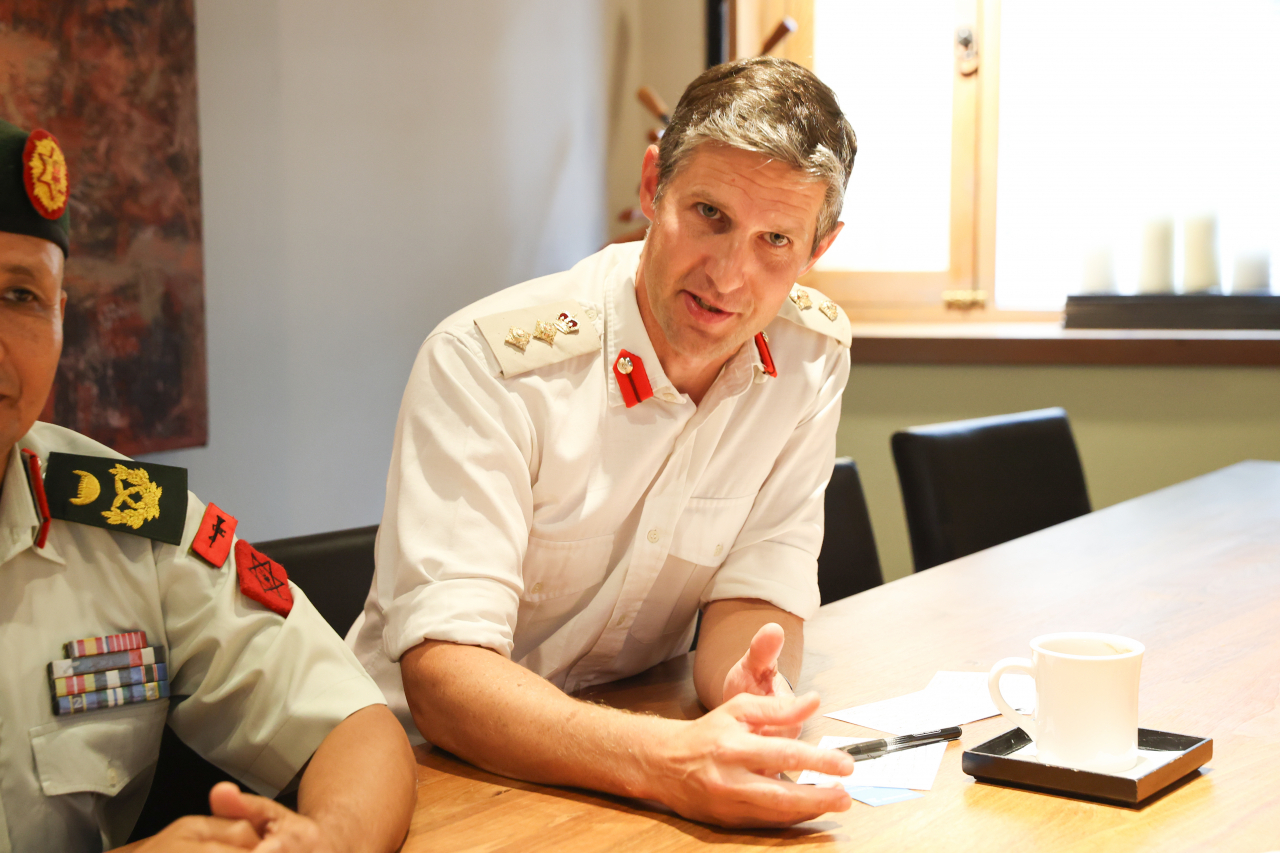
“We have excluded (women from military services) for a long time, so we might need some positive discrimination. We need equity rather than equality,” Khadka added. He emphasized the necessity of diverse interventions to solve the imbalance. “Governments can formulate laws, rules and regulations allocating a certain quota percentage to women, actively encouraging female forces to be included. On the social level, we should teach children that anyone can choose to join the military, regardless of their gender.”
“Our objective is to find peace, and to do so, we want to use all of the resources that we can possibly get. If we're excluding women, then we're excluding 50 percent of the possibilities of innovation,” Wellwood said.









![[Hello India] Hyundai Motor vows to boost 'clean mobility' in India](http://res.heraldm.com/phpwas/restmb_idxmake.php?idx=644&simg=/content/image/2024/04/25/20240425050672_0.jpg&u=)


